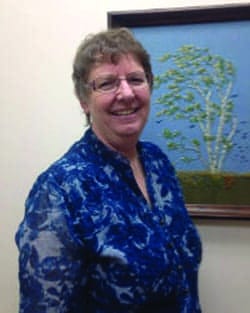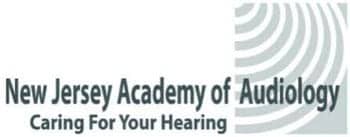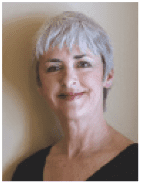Blog Page | April 2015 Hearing Review
The following is adapted from Lolly Wigall’s January 27, 2015 article at her and Angela Loavenbruck’s Hearing Views blog at HearingHealthMatters.org. — David Kirkwood, HHTM editor
Over the years, I have been involved in many professional organizations. When living in New Jersey, I was the audiologist on the Association Board where I met some wonderful people. When we moved to Massachusetts, I agreed to be secretary for the Massachusetts Hearing Aid Society, and I was co-chair of the New England Hearing Health Convention for 3 years. In 1997, I was appointed by Massachusetts Governor Cellucci to be the audiologist on the newly formed Hearing Instrument Specialists Board. I am still there.
Having been a leader and member of several organizations, I understand that sometimes goals clash—or at least move on different trajectories. Sometimes we members do not take the time to talk to the leaders about our needs or goals. Sometimes we just don’t see the bigger picture. And sometimes we are not given the opportunity to voice our opinions.
Last year, one of our professional organizations sent me a survey which I dutifully completed. The organization said it was trying to “hear” from its members. However, the way the questions were asked and the multiple-choice answers offered had little to do with my interests or concerns. It was obvious the questions were selected by people who work in a university, hospital, or ENT setting; the questions had little to do with private practice. To me, it had more to say about the people who wrote the questions than about those of us who answered the survey.
Academia vs Real-life Practice Realities
Being a good clinician doesn’t mean you’ll be a good business person. I am in private practice. I test hearing and sell hearing aids for a living. I do billing for my testing. I am a provider for most, if not all, insurance companies in my area. I do my own marketing; I train staff; I run a business. There are many skills I have needed over the years to make my business successful. However, the one skill I needed from my very first day was being able to sell hearing aids.
One article I recently read stated that many audiologists will enter the workforce either as independent practitioners or as clinic administrators in hospital settings. But, in the goals listed, there was no mention of selling hearing aids. Hmmm, I thought. I must be missing something. To be in private practice means you need to sell hearing aids. To be a hospital administrator means having some business sense that includes marketing and selling.
No student I have supervised over the last 35 years has ever taken a class on selling hearing aids or marketing. If students are expected to enter the workforce as private practitioners, doesn’t this seem like a major oversight in the university curriculum? I talked to the director of a program about this very issue. She told me that there was “no room” in the curriculum for a class like that.
Students Need Both Clinical and Business Skills
Beyond clinical skills, audiologists need to be trained in the basic principles of business. This year I have taken a stand. I am insisting that every student who does a practicum in my office read books on selling and marketing.
I have a number of books and podcasts that have influenced me, and there are many excellent resources in this area. I purchased used books that I loan to the students. I am determined to make the students develop a style that fits them so they can sell hearing aids by the end of the semester. If they are to make a living dispensing hearing aids, they need to learn sales skills while they are in their doctoral program.
Over the years, I have hired AuD students who were completing their externship. I had to teach them how to sell hearing aids, too. Doing hearing tests, relating to patients, explaining test results, selling hearing aids, writing a contract, asking for thousands of dollars, fitting the hearing aids, explaining care of the aids, and doing follow-ups need to be part of the university curriculum. By the time students are ready for their externship, they should be able to accomplish these tasks with ease. However, this is often not the case.
In my opinion, that’s why many audiologists in private practice will not hire someone in their externship year. My friends who own private practices often say, “The extern students cannot sell. And they want too much money while they are learning to sell. It is too expensive.”
Students will begin looking for jobs soon. The best advice I can offer is to learn to sell hearing aids in the next few months if you want to earn a living. One book that helped shape my “sales life” is Top Performer by Stephen Ludin. This book talks about creating a persona, which I find very helpful. Guerrilla Marketing by Jay Conrad Levinson is a super helpful book about finding inexpensive marketing methods.
More recently, I found Seven Reasons Why You Suck at Sales and What to Do About It by William Wyatt. As the title suggests, it is a straightforward and blunt read. Another book I liked was Never Be Closing by Tim Hurson and Tim Dunne; it sums up sales as being about relationships and the process of getting things done. There are many podcasts on sales.
Students should know they need basic selling skills, and these skills should be honed throughout their careers (I’m still learning). I hope I can make a difference for the students passing my way. I want to help equip them for life after school.
Lolly Wigall, MS, is a dispensing audiologist and has been the owner of Atlantic Audiology Inc in Wilmington, Mass, since 1989. Prior to that, she was the first audiologist in New Jersey to develop a hospital-based program for dispensing hearing aids. Her primary professional interests are dispensing hearing aids and educating the public and physicians about hearing health issues. She has a TV show called “Let’s Talk About Hearing with Lolly Wigall” that airs on 25 local cable channels and she also writes a weekly news column with the same name.
Original citation for this article: Wigall, L. Students Need Sales and Marketing Skills. Hearing Review. 2015;21(1):12.






